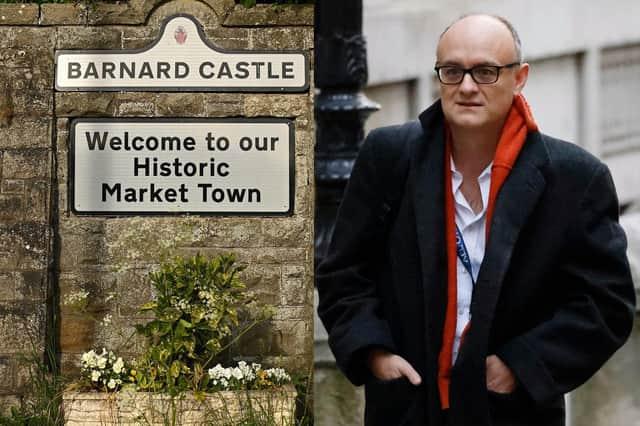Covid: Dear Nicola Sturgeon, don’t place too much faith in Dominic Cummings’ word – Brian Wilson


Furthermore, I have an instinctive dislike for personalising blame for deaths. No politician sets out to kill people and while charges of incompetence are legitimate, the accusation that “tens of thousands of deaths resulted…” should not be laid at any human being’s door without irrefutable evidence.
I have no difficulty recognising Cummings’ general account of chaos within Downing Street though he is less credible as the lone voice of reason. According to Nicola Sturgeon, however, even “a fraction of what Dominic Cummings described” is sufficient to sustain his indictment.
Advertisement
Hide AdAdvertisement
Hide AdBut which fraction? Presumably she did not have in mind the fraction in which he recalled “four nations” meetings being undermined by the certainty that Ms Sturgeon would hot-foot it to the nearest microphone to put her own political spin on whatever had been discussed.
That too has the ring of credibility but Mr Cummings saying it does not make it true. Ms Sturgeon should be careful about relying on self-serving testimony as a shield against questions which reside primarily in Scotland. The enemy of your enemy can be a dubious ally.
The question of how Whitehall decisions impacted on Scotland is important and should form part of an inquiry. However, I suspect we are already seeing an attempt to avoid our own comprehensive inquiry, the remit of which would include the role of Whitehall but would certainly not be exclusive to it.
If Cummings taught us anything it is that precise chronology is important and should not be blurred by the passage of time. I remember coming back from Thailand in late February and being surprised by the lack of pandemic response in Scotland and the rest of the UK.
There was no talk of face masks or temperature taking, both mandatory in Thailand. On March 7-8, I attended two large sporting events and mingled in an Edinburgh pub with French rugby supporters. Official advice conveyed no recognition of how urgent and serious the threat was. (Check out Jason Leitch on Off the Ball, March 15, which is still on-line).
Cummings says that he was urging lockdown three weeks earlier than it happened, in late March. I cannot find a shred of evidence of that having been urged by the Scottish government, any more than from Downing Street.
This was consistent with the non-response to the Nike outbreak in Edinburgh at the end of February which would undoubtedly, if publicised, have led to calls for an earlier lockdown. Who decided the Nike outbreak would not be publicised? Edinburgh? Whitehall? That question still needs answering.
At that point, with no confirmed recorded cases in Scotland and a few dozen in the UK, the whole level of awareness would have changed and a clamour for serious measures would have risen. It is the weeks between Nike and March 23 – when the lockdown started – that Mr Cummings is talking about so the forensics of that chronology are crucial.
Advertisement
Hide AdAdvertisement
Hide AdThe NHS in Scotland has been devolved since 1948 with the right – frequently exercised – to do things differently. I have no doubt that under some previous ministers, notably Sam Galbraith, the “test, test, test” mantra urged by the WHO would have been pursued in Scotland regardless of what was happening elsewhere. Why was it abandoned?
Even more certainly, fateful decisions about discharges into Scottish care homes were taken in Scotland and the fact similar errors were made elsewhere is really quite irrelevant.
An inquiry should look at whether more powers might usefully have resided in Scotland but it should also ask the less convenient question – were the existing powers utilised to the full?
We need a comprehensive Scottish inquiry in recognition of the fact that health is indeed a devolved area, and there is no excuse for delay. Mr Cummings will soon be yesterday’s news but the need for our own Scottish answers will persist – not in order to blame, but to learn.
A message from the Editor:
Thank you for reading this article. We're more reliant on your support than ever as the shift in consumer habits brought about by coronavirus impacts our advertisers.
If you haven't already, please consider supporting our trusted, fact-checked journalism by taking out a digital subscription.
Comments
Want to join the conversation? Please or to comment on this article.
